This may seem a surprising question, given that France welcomes tens of thousands of Muslims from Africa and the Middle East every year, despite the considerable costs involved. Yet every time a social debate on Islam opens up, it is always a lost case.
It was so with the ban on the headscarf in schools, and today with the ban on the 'Abaya', which seems as incomprehensible to a foreigner as it is fascinating to a Frenchman. The abaya is a long, loose Arab dress covering the body from neck to toe, in a more or less oriental style. It is often worn by Muslim women together with a headscarf. At the start of the new school year, the French government has decided to ban wearing of the abaya in schools. As the headscarf is already banned in schools, pupils are not allowed to wear a long, shapeless dress.
So I found myself agreeing with the radical left, which, in its unnatural love for the Muslim electorate, is railing against a state dictating how our children should dress. Especially since, in my humble opinion, there are far more unseemly accoutrements in our schools than the abaya. Then I listened to Gilles Kepel, the great specialist in Islam and the contemporary Arab world, professor at the University of Paris Sciences et Lettres and head of the Middle East-Mediterranean Chair at the École Normale Supérieure, a pioneer and leading authority on the study of Islamism and its dangers. He believes that "wearing the abaya in school is a way of testing the limits". Wearing it is "part of a strategy that Salafism (rigorist Islam) calls allegiance and rupture". "In other words, we pledge allegiance to divine law, as the Salafists imagine it, and we break with the laws of the miscreants, which are those of the Republic, in an attempt to mark out a territory instead of advocating republican integration (...). We are trying to encourage what the President of the Republic called separatism". "The Salafists want to mark French society so that they can take their Muslim co-believers hostage. This is not at all an expression of Islam; Islam can be expressed in a thousand other ways than by wearing an abaya!” President of the Republic, Emmanuel Macron, took exactly the same line, explaining that, in the case of wearing of the abaya, the government intervened because “all the school heads have said, quite rightly, that the pressure is on us too great. We have parents who challenge us, people who test secularism. Let's make no mistake, in our society we also have - albeit in a minority - people who, by hijacking a religion, come to challenge the republic and secularism, and I'm sorry, but that has sometimes led to the worst. We can't pretend that the terrorist attack and murder of Samuel Paty [a teacher beheaded by an Islamist] didn't happen in our country, for it did..." Clearly, if this dress is a mark of rigorist Islam that leads by nature to combatting Islam and its horrors, it must be banned as soon as possible.
I thought I'd finally found some peace on this issue until I heard CNews journalist Charlotte d'Ornelas (demonised in the mainstream media for her opposition to immigration) storm out, saying: "No one wants to see the real issue, we've been arguing for a week about the abaya, but let's not forget that in 1989 there were 3 [Islamic] veils in Creil, and what we said? We're going to ban the veil but continue to bring in tens of thousands of people with foreign customs without ever imposing our own. Well, no more! History is made by demography!” It's also true that if we welcome several million Muslims to France, we can't be surprised if Islam develops there. As Bossuet elegantly put it: “God laughs at men who deplore the effects of causes they cherish.” Those who say such things in a polite society are immediately told by automatons that “90% of Muslims are moderate and that the Islam of the Islamists is not the true Islam.” To which the response is always just as automatic: “The remaining 10% of Muslims are still more than half a million people, and it is mainly non-Muslims who say that the Islam of the Islamists is not the real Islam.” He goes on to ask: "Why didn't we see any large movement of French Muslims standing up to say that Islamism is not the true Islam, when France was plunged into mourning by multiple Islamist attacks? Worse still, in some schools we saw pupils refusing to take part in minutes of silence".
You'll notice that so far I've given the broad trends of opinion within French society, apart from that of Muslims. It should be noted that this is difficult to obtain, because unlike Catholics, there is no clergy within Sunni Islam, which is practised by over 95% of Muslims in France. The most representative body for Muslims in France is the Conseil français du culte musulman. According to this body, the abaya is not a religious garment, but banning it would be Islamophobic. Yes, you read that correctly, and it's a line that has been taken up by a number of Muslim leaders and the radical left: the abaya is not an Islamic garment, but banning it is Islamophobic. Some will tell you that this is a form of taqiyya, which means "prudence" and "fear" in Arabic. In Islam, this term refers to the precautionary practice of concealing or denying one's faith in order to avoid persecution. It also has another interpretation, which is considered by some to be Islamophobic: for the purpose of conquest, a believer is authorised to lie to unbelievers.
In fact, the real question that would solve all the problems but nobody dares to ask it is: what is the true nature of Islam and what kind of Islam is there in France? In Europe, we have developed the unfortunate tendency to describe Islam as a religion of peace and love, as we would like it to be, rather than as it really is. Islam is complex. Not to mention the atrocious treatment meted out to homosexuals, women and non-Muslims, or the degradation of women, consider the life of the religion's prophet: Mohammed. Note that in Europe we often refer to him as "The Prophet", as if Islam were the only true religion. The life of Mohammed is the example for every Muslim to follow. Muhammad's life can be divided into three main periods. In the beginning, he was an honest, courageous man who lived in relative poverty. When he married and became rich and influential, he looked after the poor and defended the oppressed, while taking part in the power games of his city. Then came the third and final part of his life, when he finalised the definition and framework of Islam. Forced to flee Mecca, he took refuge with the Jewish tribes of Medina, who welcomed him because he, his family and his disciples were in mortal danger. These tribes even gave him and his companions some land to live on. When he was invited, he imposed his will and his rules on his hosts. He carried out raids from their homes, provoking reprisals and committing atrocious crimes against the Jewish tribes who had welcomed him because they refused to submit to Muslim law and were associated with his thefts and wars. He massacred all the Jewish men in Medina and shared their wives, children and possessions with his "companions". This he did to the same people who had saved him and his family. The moral of Mohammed's life is that peace with Muslims can only be found through total submission to Islam. Muhammad is the supreme example for every good Muslim.
To understand Islam, it is interesting to listen to the philosopher and historian Rémi Brague, a member of the prestigious Institut de France: "The difference between Islam and Islamism is quite difficult to draw. Islamism is an impatient Islam and Islam is a patient Islamism. But I wonder whether the ultimate goal might not be the same for both (...) I'm obviously a textualist, this is my job. It's easy to show that the Inquisitor Torquemada betrayed the Gospel, but much less easy to show that Daech [Islamic State] betrayed the Koran. And you have to look at the difficulty that the people of al-Azhar [al-Azhar University, based in Cairo, has been one of the oldest and most prestigious places of Islamic learning in the world since 988] had in condemning the jihadists, because Daech told them: ‘read the biography of the Prophet, that's exactly what we're doing’. We can cite the example of the unfortunate Jordanian pilot who was burnt alive by Daech, and there was a discussion between the people of al-Azhar who said ‘no, he should just have had one hand and one foot cut off, only God burns sinners in hell’. Daech replied that a companion of the Prophet had burnt his opponents alive, so burning of the pilot couldn't be completely wrong. On the contrary, it is much more difficult to justify the crusades in terms of the Gospel. What's more, the crusades are a dated historical fact, whereas jihad is a permanent obligation, which is not set in time and can take different forms, peaceful or otherwise. It is an obligation that is supposed to come from God, because the Koran, for Muslims, has God as its author.”
In fact, the Muslim authorities in France do not want a major debate on what Islam really is, because then many people with a Christian background would realise how far removed this religion is from all their values. The radical left does not want this debate either, because it would confront the leftists with all their contradictions, their staunch atheism, their liberalism with regard to morals in total opposition to the prescriptions of Islam, but also and above all with their unavowed fantasy: to turn Muslims into atheists like everyone else. The centre, for its part, has a horror of divisive fundamental debates, and prefers to tackle the visible consequences rather than the roots, by showing its electorate, which is fed up with seeing the symbols of Islam being imposed everywhere in France, that it is taking action by banning the abaya from schools. The French Right, which has been in an abysmal, even staggering, intellectual vacuum for the last forty years, fantasises that one day it will wake up and there will be no more Muslims or immigrants in France. And that the natural child of Napoleon and de Gaulle will come to power and make France great again. The denial of the French Right, which cannot conceive that after 50 years of massive immigration Islam is now an inherent part of the French landscape, is simply mind-boggling.
In fact, from the left through the centre to the right, France is Islamophobic, though subconsciously. Namely, it is Islamophobic by nature, since Islamic culture and civilisation are absolutely opposed to everything that makes up the country's art de vivre, its wine, its cuisine, its libertarianism, its saucy and critical spirit, its egalitarianism, its secularism, its committed and free women. For reasons of humanism and universalism, which are also part of its very nature, France refuses to admit it. Or to be more precise, it’s the French elites who do not want to face the truth, since poll after poll shows that the vast majority of French people are in favour of stopping non-European immigration.
Read also
Six great misunderstandings about Russia
To read the thoughts of many French opinion leaders and their supporters on social networks about Russia is to despair of humanity. They base almost all their analyses on misunderstandings that can only lead to erroneous conclusions.
Patrick Edery
The danger of a reactionary narrative of ecologists on climate change
As someone who is particularly attracted to ideas contrary to my own and confronting them, I am always astonished when it is no longer allowed to challenge a line of reasoning without being ostracized from society.
Patrick Edery
Hamas is on the verge of handing Putin a strategic victory
In my September report (LINK), I explained how Moscow had regained the upper hand in the media, thanks in particular to the campaign launched by Nicolas Sarkozy, and then to the shady game played by Berlin.



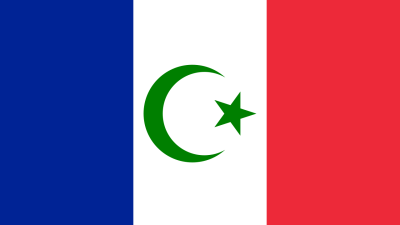

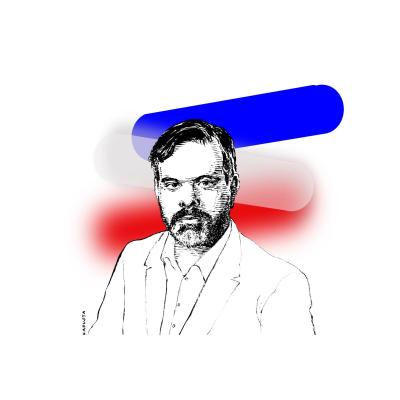
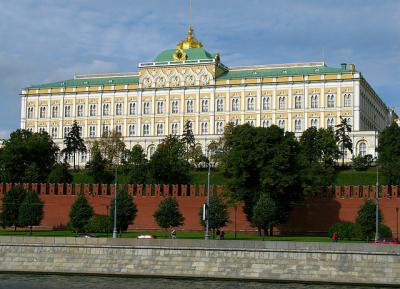

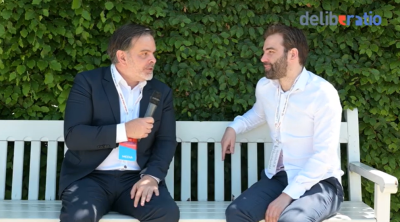



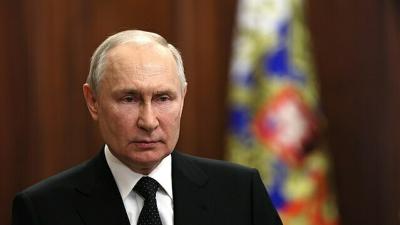

Comments (0)